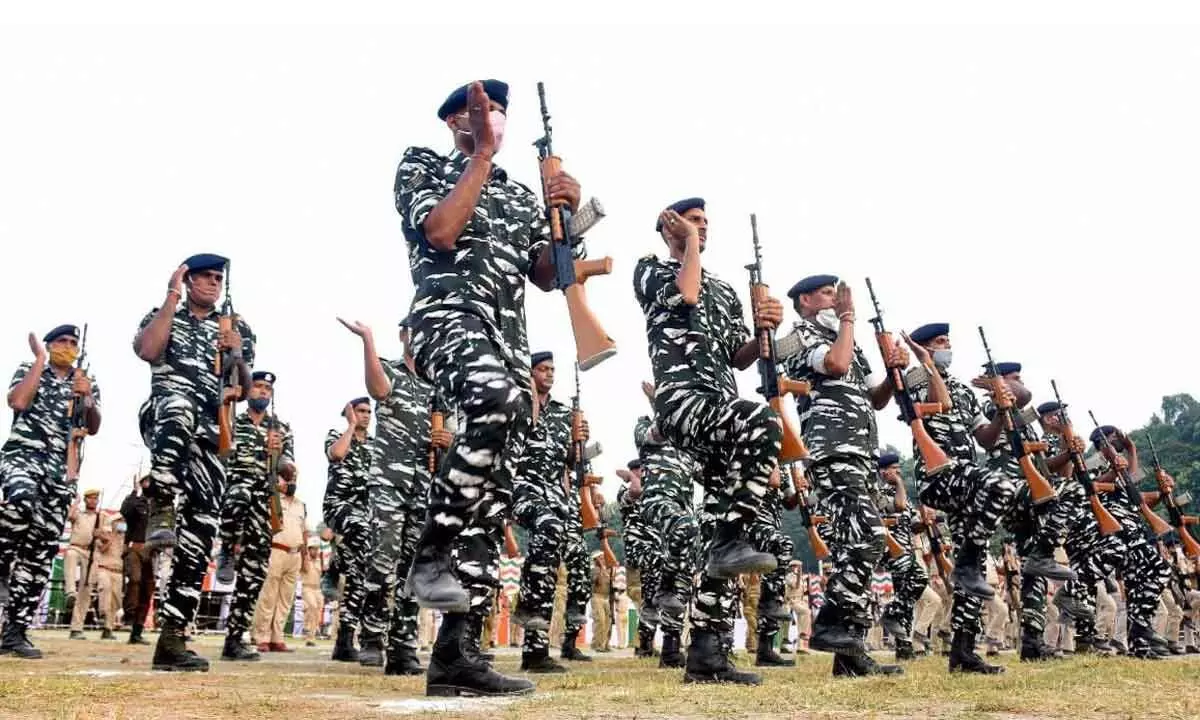Integrating Agnipath with National Education Policy

The Union Cabinet recently approved a transformative recruitment scheme for Indian youth to serve in the Armed Forces.
The Union Cabinet recently approved a transformative recruitment scheme for Indian youth to serve in the Armed Forces. The scheme – Agnipath, and the youth selected under this scheme – Agniveers allows patriotic and motivated youth to serve in the Armed Forces for a period of four years.
This decision of the Union Government to initiate reforms in the Indian defence systems has become contentious as misinformation has become the dominant discourse. The incidents of violence that rocked the country and shocked the consciousness of the nation are indeed unfortunate. At the core of the entire debate is what would happen to the Aginveers if they do not become part of the 25 per cent of the permanent commission after the mandatory four years of service. Although the relaxation has been given for the current spell of recruitment as a one-time measure to factor the COVID scenario during the last two years, the age for recruitment is going to remain 17 and termination at 21.
The apprehension of the youth – "What after 21" is a genuine one. Here is where proper communication is imperative. Although the government talks in terms of equipping the youth with certain skills, it has not cut ice in an expected way as the expression 'skill development' has become a cliché for multiple reasons during the last two decades. The programme may inculcate certain skills amongst the recruited but whether the skills thus gained would automatically secure livelihood opportunities is not certain. It is this ambiguity that is creating a sense of panic and insecurity among the youth.
Imagine a situation where the Union Government doesn't notify a recruitment drive for defence forces. What would these aspirants do? Most of them would go for under graduation courses at 17 as most of them would have cleared their 10+2.
This is where the University Grants Commission (UGC) and the National Education Policy (NEP) would come into the equation. The National Education Policy (NEP) was unveiled in 2020 and its implementation aims to completely transform India's approach to education and training. The NEP mentions several fundamental principles that will guide the NEP and that include:
S no hard separations between arts and sciences, between curricular and extra-curricular activities, between vocational and academic streams, etc. in order to eliminate harmful hierarchies among, and silos between different areas of learning;
S multidisciplinary and a holistic education across the sciences, social sciences, arts, humanities, and sports for a multidisciplinary world in order to ensure the unity and integrity of all knowledge
S ethics and human & Constitutional values like empathy, respect for others, cleanliness, courtesy, democratic spirit, spirit of service, respect for public property, scientific temper, liberty, responsibility, pluralism, equality, and justice;
S promoting multilingualism and the power of language in teaching and learning; life skills such as communication, cooperation, teamwork, and resilience;
S respect for diversity and respect for the local context in all curriculum, pedagogy, and policy, always keeping in mind that education is a concurrent subject;
The NEP therefore provides a framework where vocational skill can be integrated into education and formal degrees can be earned. The Agnipath scheme itself has been designed to enable a youthful profile of the Armed Forces. It will provide an opportunity to the youth who may be keen to don the uniform by attracting young talent from the society who are more in tune with contemporary technological trends and plough back skilled, disciplined and motivated manpower into the society.
During this period of service to the nation, the Agniveers will be imparted with various military skills and experience, discipline, physical fitness, leadership qualities, courage and patriotism. Therefore, the Agniveers after four years would have picked up many skills including crucial life skills and discipline that would stand them in good stead even if they were not selected in the 25 per cent of the permanent commission.
Furthermore, The National Institute of Open Schooling (NIOS) is instituting a programme in collaboration with the defense authorities to develop customised courses to enable Agniveers obtain Class XII certificates. However, there is an opportunity to go beyond Class XII certificates as there can be various collaborations with institutes and universities. The best example one can emulate is that of the National Defense Academy (NDA).
The convocation ceremony of the National Defence Academy (NDA) at Khadakwasla, Pune also awards degrees to cadets that are passing out. These degrees are usually awarded from the Jawaharlal Nehru University (JNU) that has a Memorandum of Understanding (MoU) with the NDA. The three-year course is split into six terms during which a cadet learns science, technology, arts and military subjects.
For a cadet, a term consists of 22 weeks of training that is covered in eight cycles of 13 'D' days each —utilized for outdoor training as well as academic classes. This adds to 104 contact days in a term as mandated by the Jawaharlal Nehru University (JNU) which awards the cadet with a Bachelor's degree.
Now as per the programme announced by the government, all the Agniveers would undergo a training for 6 months and remaining three and half years is the field. If the UGC could step in offer an undergraduate programme in collaboration the Ministry of Defence factoring the 4-year term and credits, the students would get an Undergraduate degree in Defence studies and by the age of 21 the candidate would be a graduate.
As the Agnipath Scheme could be seen in full integration with the principles of the National Education Policy, it would be advisable for the UGC to step in to find a tangible solution that will clearly be a win-win situation for all.
(The author is Professor, Osmania University)








